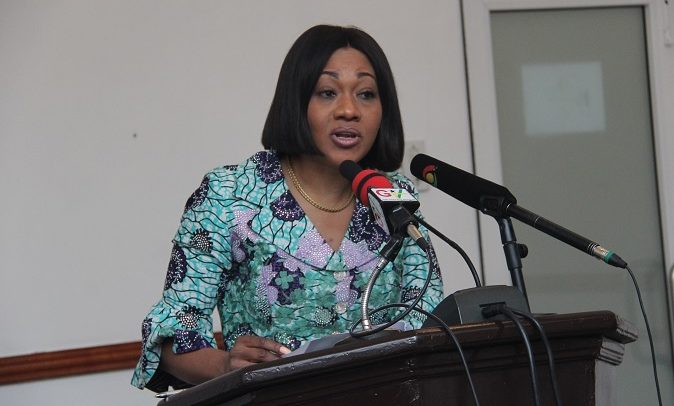Jean Mensa
The plot against state institutions is thickening to the extent that it pleases some of our politicians to discredit these entities and those who head them.
The NDC will not discredit Parliament as one of the arms of government because presently it is headed by one of their own, Speaker Alban Bagbin. The other two arms of government, the Executive and the Judiciary, are regarded as demons who are working against the interest of the people. One of the commentators even recently alleged that “the most corrupt deals are cooked in Jubilee House,” in an apparent reference to the President and his government.
What is happening on the political space is an indication that we have not learnt any useful lessons from the admonition of President Barrack Obama in his address to Parliament in 2009. He called for, among others, strong parliaments, transparent institutions, honest police forces and independent judiciaries in the 21st century, adding that Africa does not need strong men but strong institutions.
Presently, the NDC, its leaders including John Mahama and their supporters miss no opportunity to impugn the integrity of state institutions. These reckless attacks are aimed at the Judiciary, the Electoral Commission (EC) and other independent bodies that have a role to play in our democratic journey.
The people should call out the politicians who have reduced the political contest into an insulting brawl. The NDC and its allies such as Martin Luther Kpebu, Professor Ransford Gyampo, Okudzeto Ablakwa, Ato Forson with the collaboration of some media outlets think the only way to have their way is to attack the person of Jean Mensa and Chief Justice Gertrude Torkornoo, in order to ridicule them before the right thinking members of society.
Since the commencement of the limited voter registration exercise, the NDC has consistently been on the neck of the EC making lame claims that the commission is in bed with the NPP government to prepare the grounds to rig the December 7 elections on behalf of the party. The strategy of the NDC is to tell lies about the EC, the Judiciary and other state institutions on a sustainable basis for the people to believe the propaganda to be the truth.
The NDC leader, John Mahama, has tried to perfect his training in communications which postulate that for public opinion to make an impression on the people it has to be sustained. That is why the NDC has made it a point to cry wolf from the registration centres, when in most of the areas that the EC has recorded infractions such as registration of minors and foreigners, the NDC is at the centre of the alleged breaches.
It is time all Ghanaians recognise that the act of nation-building is not going to be a tea party. It requires sacrifices and hard work, and more especially a concerted action to rebuild our country. The commentators should not underestimate the intelligence of Ghanaians to make informed decisions at the polls. The two political parties that have governed the country must be forced by the people to campaign on their records. We should reject the political party that has reduced the political space into a contest to insult their opponents. We have come a long way in our search to turn the corner completely.
That is why we must reject those who want to lie again to win power, reminiscent of the 2008 polls. We see those who lied about former President Kufuor in 2008 coming back in different garbs doubling as Ato Forson, Sammy Gyamfi and Okudzeto Ablakwa throwing dust about Unilever and SSNIT. This kind of narrative would not wash in 2024.
We want John Mahama and Vice President Mahamudu Bawumia as well as those leading the “Movements” to tell the people about the positive things they have done for Ghana. We are tired of the rhetoric and the insults, the trademark of mostly the NDC and its collaborators in the media, academia and civil society.
Our prayer for Ghana is simple. We want the politicians to give us hope about the future. It should not be contest to insult our opponents or impugn the integrity of state institutions such as the Electoral Commission, the Judiciary, Economic and Organised Crime Office (EOCO) and strategic organisations.
Let us build confidence in these institutions to help in the sustenance of our democracy. The involvement of majority of the people in the decision making process, and more especially playing by the rules, hold the key to our progressive advancement. We should resist any attempt to trivialise the national development debate.


